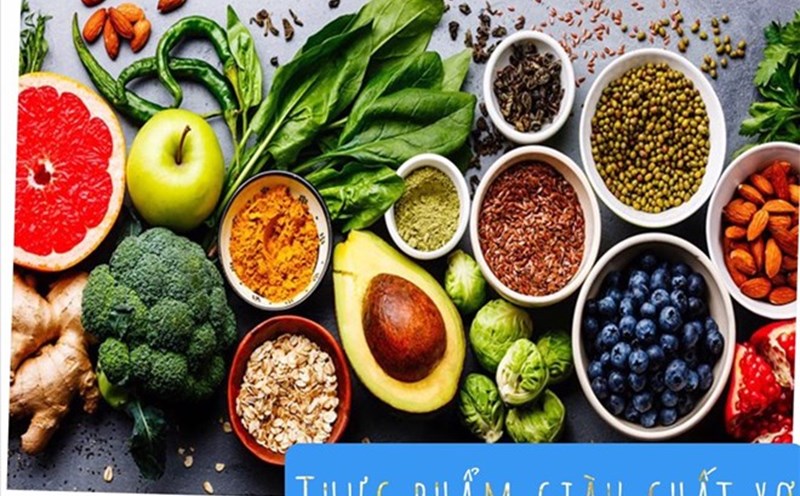Yogurt
Yogurt contains many probiotic bacteria such as Lactobacillus and Bifidobacterium, which help balance the intestinal microflora, thereby strengthening the natural immune system.
According to research from the American Journal of Clinical Nutrition (AJCN), children who regularly consume yogurt reduce their risk of respiratory illness due to influenza by up to 30%.
Probiotics in yogurt also help increase the production of IgA antibodies, which help protect the body against influenza viruses.
Children should eat 1 box of yogurt every day, can be combined with fruit to increase nutrition.
Orange, tangerine
Vitamin C is an important micronutrient that helps the body produce white blood cells, increasing the body's ability to fight viruses. According to the US National Institutes of Health (NIH), children who get enough vitamin C have a 25% lower risk of catching the flu than children who are deficient in this vitamin.
Oranges, tangerines, grapefruits and lemons are all high in vitamin C, which can help reduce the length of illness if your child has the flu.
Children can drink orange or tangerine juice or eat it directly to absorb maximum nutrients.
Egg
Zinc plays an important role in activating T-cells, helping the body recognize and destroy influenza viruses quickly. According to the World Health Organization (WHO), zinc deficiency reduces immunity, making children susceptible to viral diseases, including seasonal flu.
Eggs are a rich source of zinc and protein, helping children increase their resistance.
Children should eat 3-4 eggs per week, prepared by boiling or steaming to retain nutritional value.
Salmon
Omega-3s in salmon help reduce inflammation and boost the immune system. Salmon is also rich in vitamin D, an important nutrient that helps the body fight viruses.
According to research from Johns Hopkins Medical Center, children with high levels of vitamin D are less likely to get the flu than children who are deficient in this vitamin.
Salmon can be prepared into soup, congee or baked to make it easy for children to eat.
Sweet potato
Sweet potatoes contain beta-carotene, a powerful antioxidant that boosts immunity by promoting the production of white blood cells. The American Dietetic Association (AND) recommends adding sweet potatoes to children's meals to reduce the risk of respiratory viruses, including influenza.
Sweet potatoes can be boiled, baked or made into soup to diversify children's taste.











